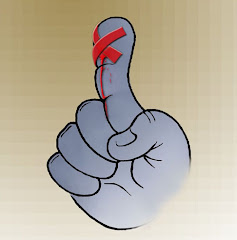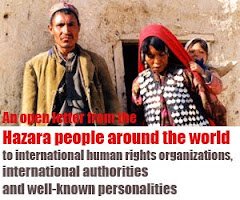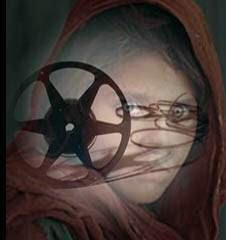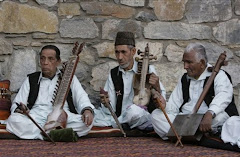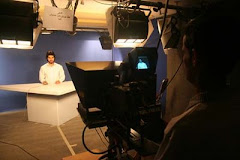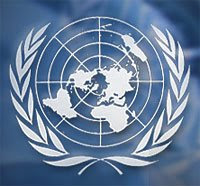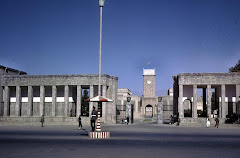.jpg)
Let’s know and introduce the traitors and foreign hirelings
Last year these days when the suicide attack occurred in Baghlan, tens of civilians were killed but the media coverage only focused on the parliamentarians especially on Sayed Mustafa Kazimi who was killed as well in this tragedy.
Nowadays, one year after that bloody attack, is there any security official among the Karzai administration to report the development on the investigation of Baghlan suicide attack in which more than sixty civilians were killed including many school children? The answer is; diffidently no!


Within the Parliament in Kabul
Having adequate financial resources provided by the IRI Regime, Mr. Kazimi was feeding his Party Iqtedar e Milli (The National Sovereignty) with a huge expense where he had his party’s publication at the same time, he could expand his relationships with the economical figures he got to know during the ministry of commerce and influenced the parliamentarians when he became the chairman for the economical committee of the parliament as well as the chairman of Isteqlal (independence) parliamentary group.
There were some of the reasons that made Sayed Mustafa Kazimi a real pain -in- neck for Karzai administration and he was assassinated in a dramatic suicide attack last year in Baghlan province.
In his late speeches and press conferences when represented the National Front, Sayed Mustafa Kazimi would approve to be a real and frank critic of Karzai Administration as well as one of the main brains of the National Front that is the main and the largest opposition group in the country.
Based on the role he played in the political games in the past the IRI Regime had opened a tremendous account on him with a huge financial resources whereas he would run his party, would feed his publication and supported many educational centers as campaigning centers for him and his party and the IRI Regime in Kabul.
He would be considered as a definite nominee by the National Front for the presidential election of 2009 that could be a serious challenge for Karzai
From 2002 up to 2005 he has shown a step by step evolution in the political ground of Afghanistan as well as his interrelation with the economical decision – makers and investors such as chamber of commerce and members of AISA during and after the time of his ministry demonstrated his leadership capability being built in him by the support of IRI Regime.
His influence in the lower house that resulted him not only to be the chairman of the economical committee but also the leader of a parliamentary group called ISTEQLAL, would help him make an anti western mobilization within the lower house of the parliament that was also supported by the IRI Regime.
Last year after his murder, the BBC Persian website wrote the following lines on his political life:
This part is written by: Dawood Naaji BBC Persian Correspondent in Kabul
Translated by Amin Wahidi
Sayed Mustafa Kazimi from Jihad time up to the Parliament
Sayed Mustafa Kazimi a notable member of the Afghan Parliament was killed with some other parliamentarians and many civilians in a suicide bloody attack in Baghlan yesterday.
Mr. Kazimi was a notable Afghan political figure in the recent years. He was born in 1959 in Lolinge a village in Parwan province.
In his youth, he left Kabul and joined Sepaah e Pasdaran e Inqilab e Islami e Afghanistan (Afghanistan Islamic Revolution Guarding Force) led by Mohammad Akbari to fight against the communists.
On that time he was mostly residing in Iran.
Hezb e Wahdat (The Islamic United Party of Afghanistan)
In the year 1989 when the eight Afghan Shiite Parties that were established in Iran all came together and formed Hezb e Wahdat e Islami Afghanistan (United Islamic Party of Afghanistan) Sayed Mustafa Kazimi was a member of the central council of this party.
In the years when Hezb e Wahdat under Abdul Ali Mazari Leadership was fighting against the Mujahedeen Government of Burhanudin Rabani (early 1990s), this party was diverge into two parts; Mr. Kazimi supported the part lead by Mohammad Akbari.
Coalition with Rabani and Masoud
Kazimi and his party Hezb e Wahdat of Akbari part joined with the government of Rabani and became a member of the leadership council of the government.
His cooperation and support continued with Ahmad Shah Masoud thereafter and once he organized a joint attack on Hezb e Wahdat forces of Karim Khalili branch in order to conquer Bamyan.
Sayed Mustafa Kazimi stayed with Ahmad Shah Masoud and become a member of Afghan Defense National Front which was later famous as the Northern Allies.
As minister in Karzai Government
After the collapse of the Taliban, Sayed Mustafa Kazimi was a representative of The Northern Allies in Germany Bonn Agreement on Afghanistan Issues.
And then become the minister of commerce in both interim and transitional states of Afghanistan.
Presence in the Parliament
In the first parliamentary election of Afghanistan, Sayed Mustafa Kazimi ran for the office from Kabul and was elected as a representative from Kabul.
Soon he became a notable member in the parliament and took the presidency of Economy Committee of the parliament while at the same time he administered a parliamentary group called ISTEQLAL (independence).
The relatives of Sayed Mustafa Kazimi say that during the years of Jihad (the holy war against the former USSR) he had completed his studies in a half private university in Iran as well as in the recent years, he was a far distance student of Iranian University of Piam e Noor for a Masters Degree.
With the National Front political group
The latest political attempt of Sayed Mustafa Kazimi was membership in the National Front of Afghanistan that is the main opposition group in the country where many other former Mujahedeen leaders and communist party members have membership.
Mustafa Kazimi was the chairman of the political committee and the spokes person for the National Front.
He had three sons and three daughters when he was killed.
Click here to see the original post of BBC Persian
Last year these days when the suicide attack occurred in Baghlan, tens of civilians were killed but the media coverage only focused on the parliamentarians especially on Sayed Mustafa Kazimi who was killed as well in this tragedy.
Nowadays, one year after that bloody attack, is there any security official among the Karzai administration to report the development on the investigation of Baghlan suicide attack in which more than sixty civilians were killed including many school children? The answer is; diffidently no!

On the other hand it is now on us to introduce the people who were introduced differently to the society but the fact is the vice versa.
Last year on November 7th in a bloody suicide attack, Sayed Mustafa Kazimi along with five other members of parliament and many civilians were killed in Baghlan province north Afghanistan while they were on an official visit of reopening ceremony of Baghlan Sugar factory* in this province.
Later on National Front, the political front in which Sayed Mustafa Kazimi was the speaker and the chairman of the political committee when was alive, claimed that Sayed Mustafa Kazimi was actually assassinated by gun firing after the suicide attack and they have seen four to five bullet holes on his body.
As they claimed, the bullet marks on the deaden body of Mustafa Kazimi was shown to the media and press that Sayed Mustafa Kazimi was fired by gun after that suicide attack.
It would be interesting to review a bit of his life background including his political activities to find out more about his personality and the reason of his assassination.
Last year on November 7th in a bloody suicide attack, Sayed Mustafa Kazimi along with five other members of parliament and many civilians were killed in Baghlan province north Afghanistan while they were on an official visit of reopening ceremony of Baghlan Sugar factory* in this province.
Later on National Front, the political front in which Sayed Mustafa Kazimi was the speaker and the chairman of the political committee when was alive, claimed that Sayed Mustafa Kazimi was actually assassinated by gun firing after the suicide attack and they have seen four to five bullet holes on his body.
As they claimed, the bullet marks on the deaden body of Mustafa Kazimi was shown to the media and press that Sayed Mustafa Kazimi was fired by gun after that suicide attack.
It would be interesting to review a bit of his life background including his political activities to find out more about his personality and the reason of his assassination.

Has the IRI regime found a successor for Sayed Mustafa Kazimi yet?
The Qods Day Celebration in Kabul after the month of Ramazan, and then the suspicious activities being run by the Ayatullah Shaikh Asef Mohseni Kandahari, Sayed Ali Javed, Sayed Hadi Hadi, Mohammad Akbari and their followers, show that the IRI Regime is still hopeful and optimistic to have their bases again in Afghanistan under the name of religious and cultural activities.
After Sayed Mustafa Kazimi was killed last year, for a time, the IRI officials may have been planning to find a successor for Kazimi in Afghanistan to follow the activities he did.
Thus Khatamunabeein Islamic Center and Tamadon Television both run by Ayatullah Sheikh Asef Mohseni Kandahari where the boys and girls study religious lessons could be a good point for the IRI Regime to centralize their activities for the coming years.
Click here to see the Khatamunabeen Islamic Center in Kabul
The Qods Day Celebration in Kabul after the month of Ramazan, and then the suspicious activities being run by the Ayatullah Shaikh Asef Mohseni Kandahari, Sayed Ali Javed, Sayed Hadi Hadi, Mohammad Akbari and their followers, show that the IRI Regime is still hopeful and optimistic to have their bases again in Afghanistan under the name of religious and cultural activities.
After Sayed Mustafa Kazimi was killed last year, for a time, the IRI officials may have been planning to find a successor for Kazimi in Afghanistan to follow the activities he did.
Thus Khatamunabeein Islamic Center and Tamadon Television both run by Ayatullah Sheikh Asef Mohseni Kandahari where the boys and girls study religious lessons could be a good point for the IRI Regime to centralize their activities for the coming years.
Click here to see the Khatamunabeen Islamic Center in Kabul
Click here to see Tamadon TV website
Click here to see the Qods Day Celebration day in Kabul
Why was Sayed Mustafa Kazimi assassinated?
Sayed Mustafa Kazimi, MP and the former minister of commerce in the Karzai Cabinet who was killed in a pre planned dramatic suicide attack in Baghlan Province during an official visit last year, was a very valuable political figure for the IRI regime.
Kazimi’s gradually political jump and his artifice how to move parallel in every step with the political flow of the country since early 1990s, showed that he was a good apprentice of the IRI politicians for the time of formation of political fractions and opposition groups in political ground of Afghanistan in the later years.
His role play crafts in the political games of the last decade, when he found a place as a religious figure among the Hazaras and then as a political ally with the Tajiks during the civil war of 1990s, attracted the IRI regime to open an account on him with tremendous amount for the later years when there will be a chance for the IRI to use him as a political tool in the country.
Based on this fact, when Kazimi stayed in Iran since the Mujahedin’s overthrown by the Taliban in 1994 until the Bonn Agreement took place in late 2001, he has expanded his relationship with the IRI regime senior officials as a main relying point to have his later projects in post Taliban period after 2002 . Although this was not the only period he moved to Iran while he was in Iran in his youth where he has studied as said by his relatives.
Kazimi has had a presence in Bonn Conference in late 2001, and then was appointed as the minister of commerce in both the interim and transitional governments following the Bonn Agreement.
Click here to see the Qods Day Celebration day in Kabul
Why was Sayed Mustafa Kazimi assassinated?
Sayed Mustafa Kazimi, MP and the former minister of commerce in the Karzai Cabinet who was killed in a pre planned dramatic suicide attack in Baghlan Province during an official visit last year, was a very valuable political figure for the IRI regime.
Kazimi’s gradually political jump and his artifice how to move parallel in every step with the political flow of the country since early 1990s, showed that he was a good apprentice of the IRI politicians for the time of formation of political fractions and opposition groups in political ground of Afghanistan in the later years.
His role play crafts in the political games of the last decade, when he found a place as a religious figure among the Hazaras and then as a political ally with the Tajiks during the civil war of 1990s, attracted the IRI regime to open an account on him with tremendous amount for the later years when there will be a chance for the IRI to use him as a political tool in the country.
Based on this fact, when Kazimi stayed in Iran since the Mujahedin’s overthrown by the Taliban in 1994 until the Bonn Agreement took place in late 2001, he has expanded his relationship with the IRI regime senior officials as a main relying point to have his later projects in post Taliban period after 2002 . Although this was not the only period he moved to Iran while he was in Iran in his youth where he has studied as said by his relatives.
Kazimi has had a presence in Bonn Conference in late 2001, and then was appointed as the minister of commerce in both the interim and transitional governments following the Bonn Agreement.
Later in 2005 when the parliament was going to be established he ran in the parliamentary election from Kabul and was elected as an MP from Kabul.
Within the Parliament in Kabul
Having adequate financial resources provided by the IRI Regime, Mr. Kazimi was feeding his Party Iqtedar e Milli (The National Sovereignty) with a huge expense where he had his party’s publication at the same time, he could expand his relationships with the economical figures he got to know during the ministry of commerce and influenced the parliamentarians when he became the chairman for the economical committee of the parliament as well as the chairman of Isteqlal (independence) parliamentary group.
There were some of the reasons that made Sayed Mustafa Kazimi a real pain -in- neck for Karzai administration and he was assassinated in a dramatic suicide attack last year in Baghlan province.
In his late speeches and press conferences when represented the National Front, Sayed Mustafa Kazimi would approve to be a real and frank critic of Karzai Administration as well as one of the main brains of the National Front that is the main and the largest opposition group in the country.
Based on the role he played in the political games in the past the IRI Regime had opened a tremendous account on him with a huge financial resources whereas he would run his party, would feed his publication and supported many educational centers as campaigning centers for him and his party and the IRI Regime in Kabul.
He would be considered as a definite nominee by the National Front for the presidential election of 2009 that could be a serious challenge for Karzai
From 2002 up to 2005 he has shown a step by step evolution in the political ground of Afghanistan as well as his interrelation with the economical decision – makers and investors such as chamber of commerce and members of AISA during and after the time of his ministry demonstrated his leadership capability being built in him by the support of IRI Regime.
His influence in the lower house that resulted him not only to be the chairman of the economical committee but also the leader of a parliamentary group called ISTEQLAL, would help him make an anti western mobilization within the lower house of the parliament that was also supported by the IRI Regime.
Last year after his murder, the BBC Persian website wrote the following lines on his political life:
This part is written by: Dawood Naaji BBC Persian Correspondent in Kabul
Translated by Amin Wahidi
Sayed Mustafa Kazimi from Jihad time up to the Parliament
Sayed Mustafa Kazimi a notable member of the Afghan Parliament was killed with some other parliamentarians and many civilians in a suicide bloody attack in Baghlan yesterday.
Mr. Kazimi was a notable Afghan political figure in the recent years. He was born in 1959 in Lolinge a village in Parwan province.
In his youth, he left Kabul and joined Sepaah e Pasdaran e Inqilab e Islami e Afghanistan (Afghanistan Islamic Revolution Guarding Force) led by Mohammad Akbari to fight against the communists.
On that time he was mostly residing in Iran.
Hezb e Wahdat (The Islamic United Party of Afghanistan)
In the year 1989 when the eight Afghan Shiite Parties that were established in Iran all came together and formed Hezb e Wahdat e Islami Afghanistan (United Islamic Party of Afghanistan) Sayed Mustafa Kazimi was a member of the central council of this party.
In the years when Hezb e Wahdat under Abdul Ali Mazari Leadership was fighting against the Mujahedeen Government of Burhanudin Rabani (early 1990s), this party was diverge into two parts; Mr. Kazimi supported the part lead by Mohammad Akbari.
Coalition with Rabani and Masoud
Kazimi and his party Hezb e Wahdat of Akbari part joined with the government of Rabani and became a member of the leadership council of the government.
His cooperation and support continued with Ahmad Shah Masoud thereafter and once he organized a joint attack on Hezb e Wahdat forces of Karim Khalili branch in order to conquer Bamyan.
Sayed Mustafa Kazimi stayed with Ahmad Shah Masoud and become a member of Afghan Defense National Front which was later famous as the Northern Allies.
As minister in Karzai Government
After the collapse of the Taliban, Sayed Mustafa Kazimi was a representative of The Northern Allies in Germany Bonn Agreement on Afghanistan Issues.
And then become the minister of commerce in both interim and transitional states of Afghanistan.
Presence in the Parliament
In the first parliamentary election of Afghanistan, Sayed Mustafa Kazimi ran for the office from Kabul and was elected as a representative from Kabul.
Soon he became a notable member in the parliament and took the presidency of Economy Committee of the parliament while at the same time he administered a parliamentary group called ISTEQLAL (independence).
The relatives of Sayed Mustafa Kazimi say that during the years of Jihad (the holy war against the former USSR) he had completed his studies in a half private university in Iran as well as in the recent years, he was a far distance student of Iranian University of Piam e Noor for a Masters Degree.
With the National Front political group
The latest political attempt of Sayed Mustafa Kazimi was membership in the National Front of Afghanistan that is the main opposition group in the country where many other former Mujahedeen leaders and communist party members have membership.
Mustafa Kazimi was the chairman of the political committee and the spokes person for the National Front.
He had three sons and three daughters when he was killed.
Click here to see the original post of BBC Persian








